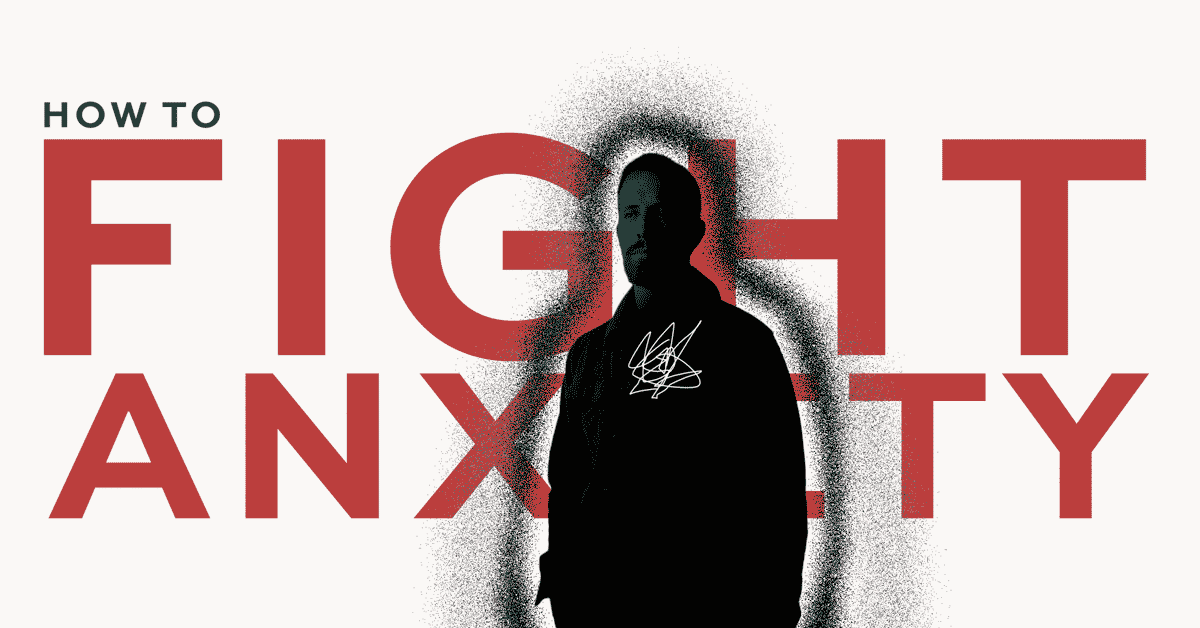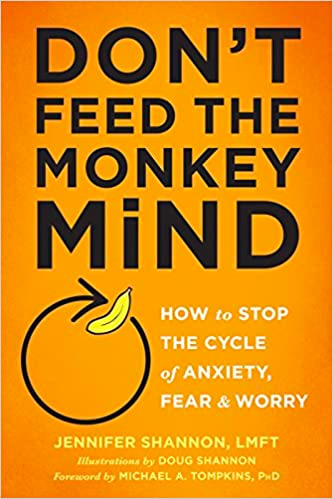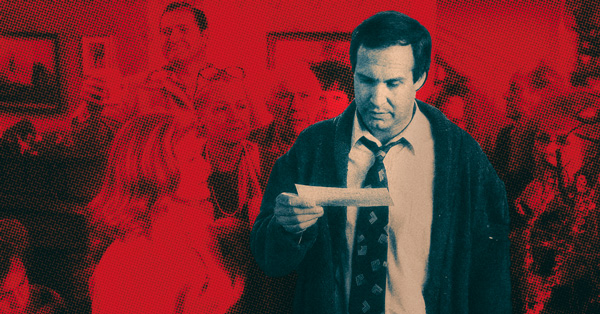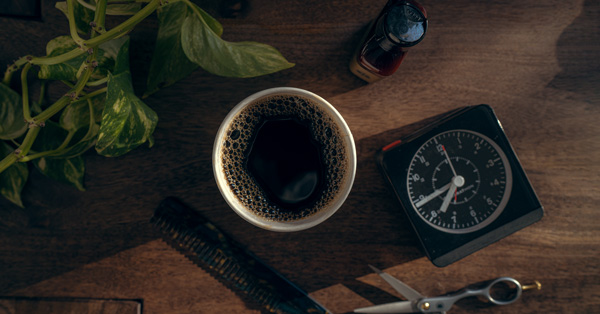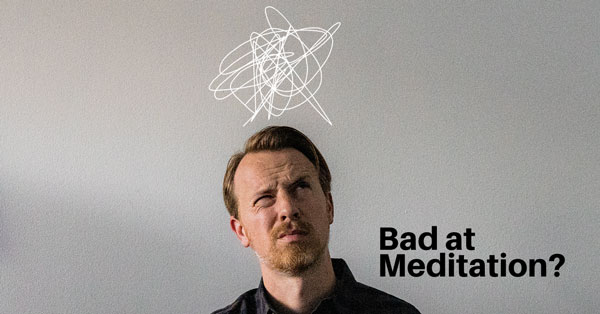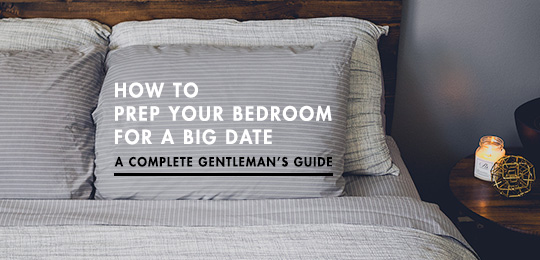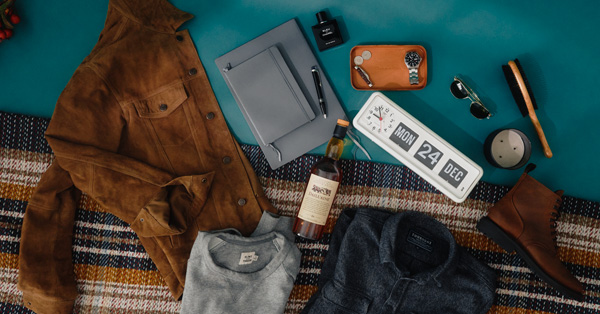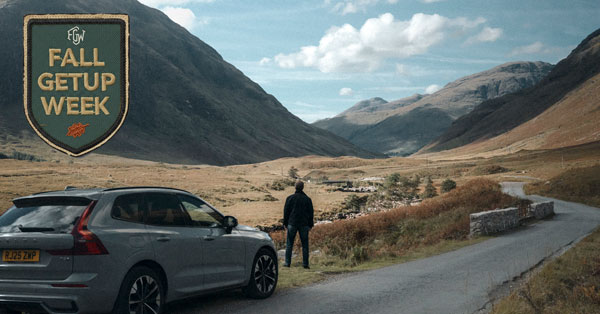I’m not exactly sure when it started, but I have these memory crumbs that I have to frequently sweep off of the tabletop of my mind: Getting stomach aches before every piano lesson, my heart racing during Mr. Foose’s fifth-grade computer class, brooding over how to say the exact right thing to the girl I liked (we probably all did that one), wondering for days if I’d pissed off that coworker.
I’m talking about anxiety. And if you’re like me, you get more than your fair share; in fact, if you’re like me, you get anxiety to the point that it’s all-consuming, damn-near debilitating. For whatever reason I’ve been anxious since I was a kid, a tightly-wound over processor with a quick wit and an even quicker sense of regret (Oh man, I shouldn’t have made that joke).
It wasn’t until my mid-twenties that I realized I needed to do something about my anxiety: I was going through a divorce, had a baby girl, and my sense of normal was suddenly thrown out like two-week-old leftovers. I needed help. I started to see a therapist, made some changes, and things got better.
A few years back I went through a traumatic event, second only to my divorce. I lost weight, started having panic attacks at work, and I couldn’t find my way out of the fog. I’ve spent the last few years retraining my brain to stop reliving that trauma everyday, to focus on what I can control, and to stop allowing my mind to start rolling a snowball of consternation down a hill of catastrophe every time something doesn’t go my way.
I’m learning that my anxiety isn’t who I am: it’s faulty wiring that I have to repair. I’m thirty-five, and I’m still not there. But I work on it.
If you’re like me, first of all, you need to hear that it will be ok. Seriously. Secondly, here are a few strategies to get you through the day. If you’ve heard these before and you’re still frustrated with your anxiety, take an honest moment to reflect on whether you’ve actually acted on them.
Start with Your Body
Exercise
When I see my therapist, Lynn, the first thing she asks me is, “When was the last time you exercised?” Why? Because Lynn likes to piss me off…ok that’s not it…it’s because Lynn knows me and knows that when I exercise regularly, I’m in a better place mentally. It doesn’t work for everyone, but according to the Anxiety and Depression Association of America, intense exercise can relieve anxiety for hours.
Psychiatrist John J. Ratey, MD writes in Harvard Health Publishing, “Getting your heart rate up changes brain chemistry, increasing the availability of important anti-anxiety neurochemicals, including serotonin, gamma aminobutyric acid (GABA), brain-derived neurotrophic factor (BDNF), and endocannabinoids.”
I have three kids, so hitting the gym five days a week isn’t realistic for me. But there are a few things I do to keep my heart rate up.
- Lift weights. Before my daughter, Izzy, was born, I lifted six days a week and ran four days a week. My body was a machine. Now, my body is less like a machine and more like a semi-ripe banana, but I still lift when I can. For me, this means 15-25 minutes twice a week. Schedule the time if you can, and if you can’t, be ready to take advantage of the opportunity when it presents itself.
- Make time to be in nature. I’m a homebody. You give me my couch, a good book, and an ice-cold Coke (bonus points if it’s in a glass bottle), and man I’m set. But when I start getting in my head (you know what I mean: work, my kids, that repair on my car, the bills), I need to step outside and breathe some fresh air. Ok, Mike, but I’m not a hiker. Yeah…me neither, but multiple studies have shown that even 10 minutes outside can improve your anxiety. For me, it’s time to take the dog for a quiet stroll around the block, throw the frisbee with my kids, or snap a few pictures.
Recently we went to our family cabin near Raystown Lake in Pennsylvania. I spent the first few hours of the trip worrying about selling our house (showings were happening while we were away): Someone is going to break something, steal something, hate the house, give us a lowball offer. Finally my wife said, get your camera, get your macro lens, and go outside for a while. My wife was right. I needed some fresh air, some open space, and some quiet. AND I managed to snap a shot of this dope spider.

- Walk. Not a runner? Don’t have time for a jog? No problem. At work, take the stairs instead of the elevator. At your lunch break, set aside fifteen minutes to walk a few laps around the building. Working from home? Walk laps around the house (inside or outside) or hop on the treadmill during your conference calls. Studies have found walking can be as effective for anxiety relief as a 45 minute workout.
- If you have kids, play with them. And this doesn’t mean make them play while you supervise/watch TikTok. Get off the couch and play, kick the soccer ball, play tag, create whole-body poses for rock-paper-scissors. You only have a few years until they’re off to college anyway, so get up and get your body moving.

Diet
Take a look at what you eat in a day. If you’re like me, you love a cup of coffee in the morning, adore sweet foods, and you eat vegetables, but only because you know you’re supposed to. I hate to admit it, but when there’s a direct correlation between what I eat and how I feel physically and mentally (I know…it’s not profound).
A few years back I asked my doctor what gut health had to do with brain health. He said, when you’re in utero, your cells form in layers, and the brain and the digestive tract form in the same layer. In short, your brain is directly connected to your gut bacteria from the time you’re little more than a clump of cells, and one quite literally feeds the other.
No one is saying you need to do a complete overhaul, but there are probably a few changes you can make to help decrease anxiety throughout the day:
- Drink more water. You know that hydration is important for your body, but recent research is showing that it’s also important for your brain. In short, dehydration can increase anxiety and depression. You’re most dehydrated when you wake up in the morning, which makes sense because you haven’t drunk anything in eight hours. So when you wake up, start with a glass of water, then move on to your coffee. And keep drinking water throughout the day. You don’t need to slam a whole bottle at a time; aI few sips per hour is fine.
- Easy on the coffee. Caffeine wakes you up, but it is a stimulant: too much can feed your anxiety. If you need the boost, try going half regular, half decaf. If you can live without the coffee, try switching over to green tea, which is loaded with L-theanine, an amino acid that’s been found to lower stress levels.
- Reach for some dark chocolate and yogurt. Dark chocolate has flavanols, which increase brain function, and it tastes so damn good. Yogurt has probiotics, which promote gut health. Not a fan of either? Here’s a list of foods you can eat to help assuage anxiety.
- Don’t trust self-medication. Be weary of alcohol as an end-of-day solution to stress and anxiety. Alcohol can actually make anxiety worse as its effects begin to wear off, and alcohol-induced anxiety can linger for days. The co-occurrence of alcohol use disorders alongside anxiety is very high. Read more: Just Because You’re Not an Alcoholic Doesn’t Mean You Don’t Have a Problem with Alcohol
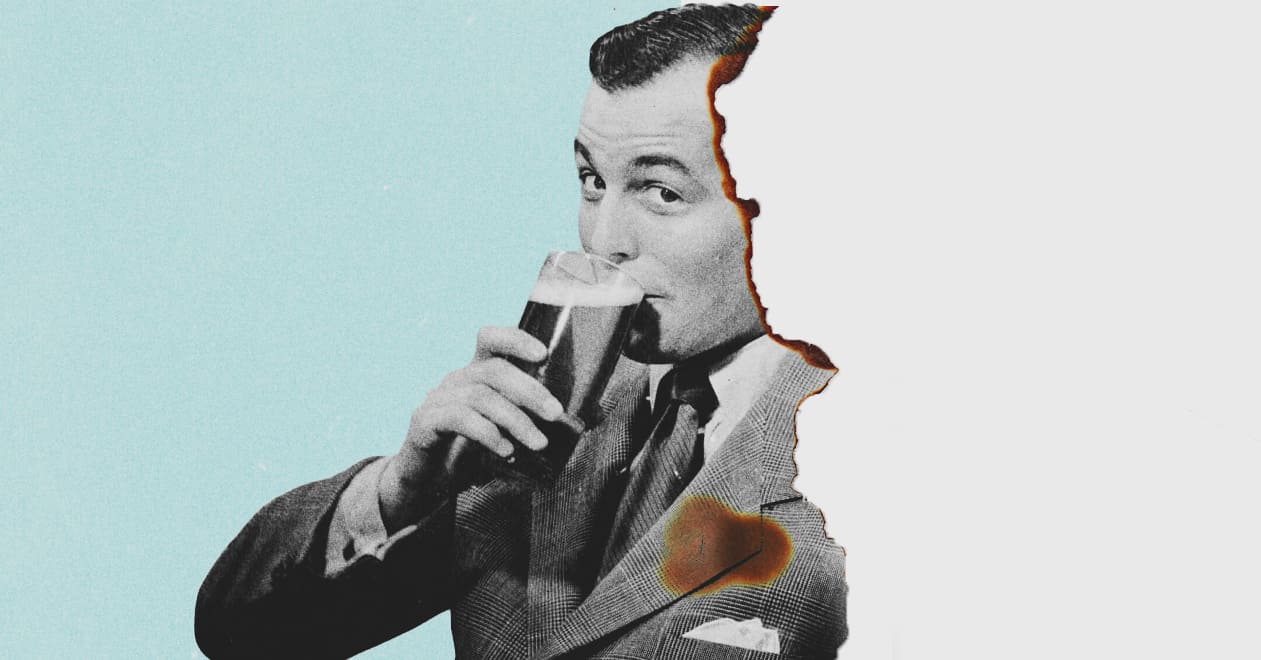
Get Control of Your Mind
One of my daughters gets anxious just like I did as a kid (there’s a genetic component for sure). When her anxiety flares up, I always look around the room and ask her, “Where is the anxiety? I can’t see it. Point to it in the room.” The lesson I want her to absorb is that anxiety is not some external force, it’s not a monster lurking in the closet. Anxiety is in our minds. And whatever I’m feeling anxious about, I’m probably the only one in the room even considering it, but that doesn’t make it any less real for me in the moment. So how do we find this balance between acknowledging the reality of anxiety and denying it the ability to take control?
- Go see a therapist. We’ve said it before, and we’ll keep saying it: Therapy is a good thing. You’re not weak, less of a man, or a failure because you go talk to a therapist. The measure of a man isn’t his ability to remain stoic in the face of trouble; it’s his ability to experience vulnerability and seek methods of growth. I’ve been seeing Lynn for the past eight years. Lynn listens, challenges me, and reminds me who I really am vs. who my anxiety tells me I am or should be.
Don’t get me wrong, therapy isn’t magic. You have to do the emotional and mental work. The therapist is simply there to facilitate the journey. And here’s a secret most people won’t tell you: There are a lot of therapists out there. If you go see a therapist, and you don’t feel comfortable after two or three sessions, it doesn’t mean that therapy isn’t for you. It just means that specific therapist isn’t for you. And that’s ok.
How to find a therapist: If you have insurance, call the mental health number on the back of your insurance card. Or, use the PsychologyToday therapist finder. Or, ask growth-oriented people you know for recommendations. Or, try virtual therapy with a service like BetterHelp or Talkspace. One of the hardest things about therapy is getting yourself in the room because it feels daunting. But I promise, it will change your life.
- Get a mantra. When you think of a mantra, you probably think of a word or phrase born out of transcendental meditation. And that’s fine, but honestly, a mantra can be any word or phrase that you need to hear in your most anxious moments. A year ago Lynn and I spent an entire session coming up with my mantra, the phrase I repeat to myself when I get anxious. My mantra is this: “None of this matters. I’ll be ok.” I know this doesn’t sound especially philosophical, but for me, it’s exactly what I need to hear.
- Meditate. If you have the time and wherewithal to go find a guru and a place that’s built specifically for meditation, I say go for it. If your schedule or wallet doesn’t allow for it, then you can meditate pretty much anywhere at any time (maybe not during a meeting with your boss). Not sure where to start? Jump on youtube and find a guided meditation video. This one was recommended to me by a coworker years ago, and I still use it. Primer’s founder, Andrew, also recommends the apps Headspace, or the Waking Up, the latter created by Sam Harris (a neuroscientist who’s smarter than you and me…and pretty much everyone else).
- Take a screen break. No, seriously, you need a break from screens (and I realize you’re reading this article on a screen…and I still think you need a break). The data is mixed, but the average American checks their phone between 60-96 times per day. The habitual use of social media like Instagram can make anxiety worse. And it’s hard to live in the moment when you’re staring at a five-inch screen instead of the world around you. Schedule screen-free time: Mornings without screens, lifting weights, having dinner, right before bed, whatever you can make work.
- Talk to your doctor. When I was hit with trauma a few years back, Lynn encouraged me to see a psychiatrist. I was sure this guy was just going to push pills down my throat, but instead he took a holistic, measured approach. First he gave me a full blood work up: vitamin C, D, B12, testosterone, calcium, iron, he checked it all. He explained to me that he wanted to establish a health baseline before moving forward.
We talked about what I’d been through, what steps I was taking to heal, and then he suggested I try a few natural supplements for my anxiety: “If this doesn’t help, then let’s talk about medication.” It helped, and I’ve been taking those supplements ever since.
Go talk to your doctor. Tell him or her what you’re experiencing and discuss your best course of action.

Get a Hobby
Remember fun? You used to have it as a kid. It’s hard to have anxiety when you’re having fun. And one of the fastest ways to infuse a little fun into your life is to go get a hobby. When I was fourteen, I got into photography, and the hobby stuck. I shoot a few photos each week, mostly of my wife and kids, but I also enjoy macro work of bugs and flowers. I post a shot on Instagram once in a while, and every few months I make prints to frame and hang around the house. It isn’t glamorous, but it’s just for me, and it’s fun.
When I’m taking pictures, I’m not anxious: I’m in the moment, capturing a memory or an emotion. This is the point of a hobby. Go get one.
I don’t have any tips or tricks for getting rid of anxiety because I don’t think anxiety is the kind of thing that goes away with a “life hack.” For as long as I can remember I’ve felt anxious, but that feeling is not who I am: it’s a mental habit to break, an emotion to manage. Anxiety is real, but it’s not in charge. So if you’re finding that you or your partner are struggling with anxiety, grab a glass of water, a bar of dark chocolate, and make an appointment with a therapist. You can do this; you’ll be ok.
TL;FO (Too Long, Freaking Out):
- Be critical of what you’re putting in your body. Drink more water, less coffee, eat less junk food. Don’t trust the relief of self-medication.
- Exercise is non-negotiable. Start small if you have to. Do what you can. But don’t accept excuses. It is clinically proven to make a huge impact on anxiety.
- Change your mind, change your life. Find a therapist and start chipping away at the personal growth that will give you lasting tools and relief.
If You Read One Book on Fighting Anxiety:
Therapist Jennifer Shannon's book Don't Feed the Monkey Mind is different from many depression or anxiety books written by clinicians in one significant way: Shannon herself has previously suffered from intense anxiety. Her ability to identify with the warped justifications the anxious mind creates for its continued existence and the thoughtful remedies she prescribes have profoundly shifted how I interact with my “monkey mind.”



